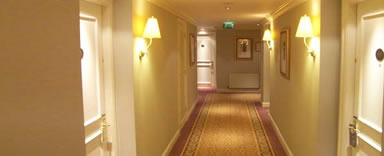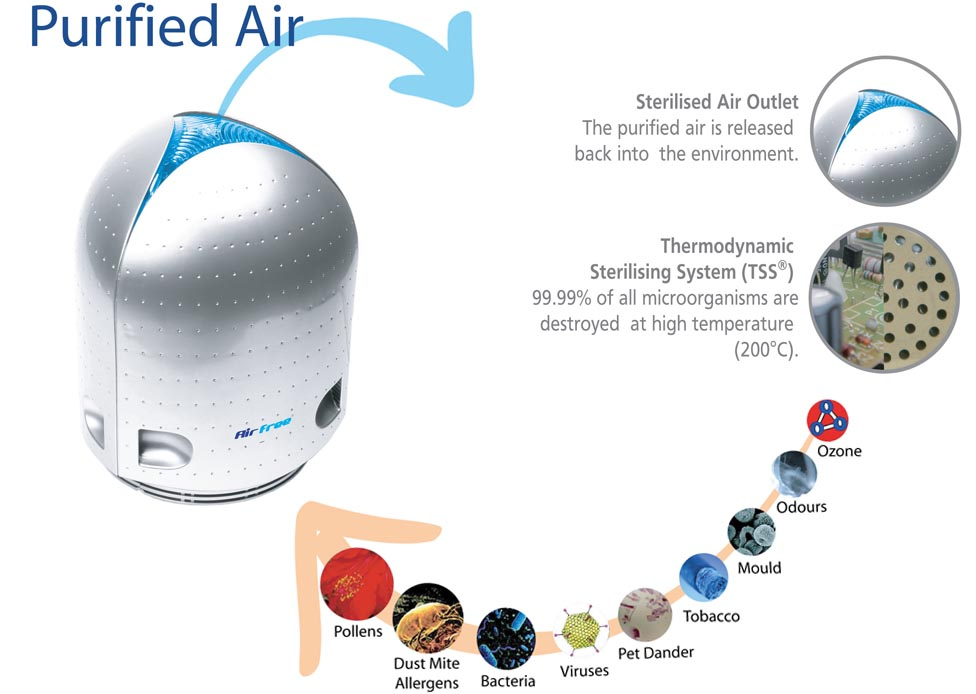Hotels

The reason for air pollution.
Air pollution in hotels has been the cause of many disorders, both for guests as for the hotels themselves.
And the main factors responsible for poor air quality are:
Bacteria: In 1976, U.S. officials were surprised by a new species of bacteria responsible for the onset of pneumonia in a group of World War II veterans... More than four thousand veterans were affected while participating in an American Legion Conference at a hotel in Philadelphia, where 182 people were infected and 29 died. (source: https://www.sbac.org.br/pt/pdfs/rbac/rbac_37_04/rbac3704_12.pdf)
After investigations were conducted, researchers discovered the bacteria called Legionella pneumophila, which had developed in the hotel's air conditioning system and propagated to all environments through the air, infecting people who inhaled it. However, Legionella is not the only potentially pathogenic bacteria present in the air, but this was the case which led experts to become aware of the importance of air quality in hotels.
Mold (fungi): Infiltration and moisture are considered risk factors to the onset of mold. Mold colonies spread releasing invisible particles in the air called spores, which when inhaled may trigger allergies (approximately 80% of those who are allergic are sensitive to mold) and even infectious diseases. At a hotel in Cincinnati, mold contamination resulted in expenditures (related to the hotel renovation) of around 2 million dollars! In addition, the hotel manager was seriously ill due to pneumonia acquired during the work. Another case of a famous hotel in Waikiki, Hawaii, resulted in the closure of a 347-room tower.
Mites: Mites are directly related to respiratory allergies and asthma. These microorganisms are found mainly in carpets, pillows and mattresses, and they prefer humid places that are rich in human skin desquamation. The waste produced by these animals contains substances that trigger allergies, and making the bed or vacuuming the floor may increase up to 1,000 times the concentration of these substances in the air. Even high-efficacy vacuum cleaners seem to be unable to remove them;
Chemical agents: they are also responsible for poor air quality in hotels. Cleaning products, tobacco and even perfumes can cause irritation to the respiratory tract. In order to mitigate the odors generated by some products, many hotels use ozone generators. However, ozone is a gas that can cause irritation to eyes, nose, throat and lungs. Prolonged exposure can lead to permanent reduction in lung capacity. Children, especially those who suffer from asthma, are more susceptible to this gas.
ENVIRONMENTAL HYGIENE FOR HOTELS.
WHAT IS THE TREND?
In order to promote the guests' well-being and provide them a more enjoyable stay, some measures have been adopted such as the use of recyclable materials with low emission of volatile chemical compounds; the reduction in the use of chemicals; and mainly the improvement of air quality, especially in the rooms .
.
Given the increasing level of public demand not only in luxury hotel chains, but also in small establishments, the "healthy hotel" concept is becoming increasingly widespread.
What do the hotels have to gain by investing in Airfree equipment?
The use of Airfree purifiers provides unique advantages, since along with other cleaning measures, they are able to transform regular accommodations into "anti-allergic" environments, by reducing the amount of allergenic substances, microorganisms and ozone in the air. After this additional service, many hotels are charging a nominal fee added to the daily rate, which makes it possible to amortize the investment in the short term, increasing the profit margin in the medium- and long-term.
Benefits:
- Spontaneous marketing – “anti-allergic rooms” generate word-of-mouth publicity spread by the customer, competitive advantages and News Press releases.
- Increased Mark Up.
- Less problems with mold.
- Reduced problems with allergies and respiratory distress.
- Reduced microbiological level in the air to meet the world's air quality standards.
AIRFREE® AIR PURUFIERS; eliminate up to 99% of mite allergens, and help keep the air free of allergens and other micro-organisms, and they are major allies in increasing quality of life of those who suffer from allergies.
How do they work?
They dramatically reduce air pollution by burning the microorganisms. As a result, the contaminated air is drawn into the Airfree® ceramic core and destroyed at high temperatures. This air purification cycle is silent, requires no maintenance and is guaranteed by numerous tests.



